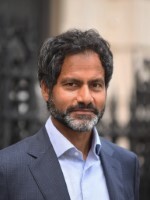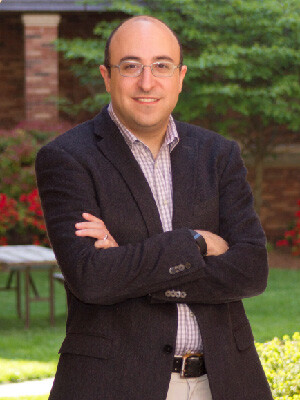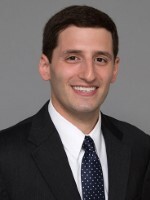Friday, October 13
8:00 REGISTRATION & Check-in (Dining Hall)
Coffee and light breakfast
9:00 WELCOME by Floyd Abrams and Dave Schulz (Room 120)
9:10 KEYNOTE: Governing By, Through, and With Technology, Hannah Bloch-Wehba, Texas A&M School of Law (Room 120)
9:40 Black Box Governance: Accountability in an Age of Algorithms (Room 120)
The adoption of new technologies to conduct government business raises fundamental questions about transparency and effective public oversight. This panel will explore the impact of algorithms and artificial intelligence on the public’s ability to know if government business is being conducted as intended and civil rights are being respected. It will consider reforms needed to evaluate and monitor the performance of government algorithms and ways journalists and activists can obtain the information needed for meaningful democratic oversight.
Moderator: Nabiha Syed, The MarkUp
Panelists:
Hannah Bloch-Wehba, Texas A&M School of Law
Ellen Goodman, Rutgers Law School
Kashmir Hill, New York Times
Jason Schultz, NYU School of Law
10:45 BREAK (Dining Hall)
11:00 Black Box Platforms: Challenges of social media regulation (Room 120)
Courts are divided over whether the government can involve itself in the content moderation of private platforms and when government officials may censor or retaliate against online speech they don’t like. Meanwhile, the algorithms and AI on which social media platforms increasingly rely to moderate content constitute their own Black Box. This panel will take up some of the many currently percolating legal issues concerning control over access to and content on these essential forums for communication.
Moderator: Clare R. Norins, University of Georgia Law School
Panelists:
Jack Balkin, Yale Law School
Jane Bambauer, University of Florida Law School
Jameel Jaffer, Knight First Amendment Institute
Tom Leatherbury, SMU Dedman School of Law
Emma Llansó, Center for Democracy and Technology
12:15 LUNCH (Dining Hall)
1:30 TECHNOLOGY AND THE SURVEILLANCE STATE (Room 127)
[Break Out 1] The ever-growing surveillance power of technology continues to foster ever growing needs for privacy protections and safeguards to assure accountability for the misuse of these new tools. This panel will focus on ways that algorithms and artificial intelligence are being harnessed by law enforcement agencies, concerns these developments raise, unintended consequences that are appearing, and what can be done to promote transparency and effective democratic oversight.
Moderator: Jonathan Manes, Roderick & Solange MacArthur Justice Center
Panelists:
Johana Bhuiyan, The Guardian
Catherine Crump, UC Berkeley
Clare Garvie, National Association of Criminal Defense Lawyers
Rob Johnson, Institute for Justice
Rebecca Wexler, Columbia University
1:30 FRONTIERS OF FIRST AMENDMENT ACCESS (Room 128)
[Break Out 2] Transparency is key to public acceptance that justice is being done in judicial and quasi-judicial proceedings, but the scope of the public's rights of access in many such proceedings remains unsettled. This panel will explore the impact of decisions sealing proceedings and records in several recent high-profile matters, including Dominion v. Fox, Carroll v. Trump, and the Trump Mar-a-Lago search warrant matter, as well as the ongoing struggle to establish access rights to records and proceedings before military tribunals and the FISA court, and electronic surveillance records.
Moderator: Matt Schafer, Paramount Global
Panelists:
Laura Donohue, Georgetown Law
Dana Green, The New York Times
Spencer Hsu, Washington Post
Max Mishkin, Ballard Spahr, LLP
2:40 BREAK (Dining Hall)
2:50 NEWSGATHERING RIGHTS & THE PROTECTION OF JOURNALISTS (Room 127)
[Break Out 3] Independent journalism is key to government accountability, but the safety of the journalists who do this work has become an important issue—around the world and in the USA as well. This panel will address the legal and practical protections that exist for reporters, their rights in covering protests and police actions, and remedies for retaliation by government actors.
Moderator: Lee Levine, Ballard Spahr LLP (ret.)
Panelists:
RonNell Andersen Jones, S.J. Quinney College of Law
Dale Cohen, UCLA Law School
Jay Conti, Dow Jones
Susanne Craig, The New York Times
Anna Diakun, Knight First Amendment Institute
2:50 FOIA MEETS AI (Room 128)
[Break Out 4] The application of AI to FOIA holds great potential for promoting government transparency. This panel will explore the way algorithms and artificial intelligence can impact FOIA compliance and FOIA requesters, along with related issues concerning urgently needed FOIA reforms.
Moderator: Stephen Match, Loevy & Loevy
Panelists:
Jason R. Baron, U MD College of Information Studies
David Cuillier, Brechner Center for Freedom of Information
Christina Koningisor, University of California School of Law, San Francisco
Michael Morisy, Muck Rock
Martha Murphy, National Archives & Records Administration
4:00 BREAK
4:10 KEEPING GOVERNMENT SECRETS (Room 127)
The scope and constitutionality of the Espionage Act has taken on new currency with the Trump indictment and the potential extradition of Julian Assange. This panel will assess the lessons of recent (Winner, Albury) and on-going Espionage Act prosecutions (Trump, Teixeira, Assange) along with the potential for reforming the Espionage Act, the current classification system or the FISA court. It will also consider the impact of recent developments on the relationship between national security reporters and the intelligence community.
Moderator: David McCraw, The New York Times
Panelists:
Heidi Kitrosser, Northwestern University Pritzker Law School
Jeremy Scahill, The Intercept
Brandon Van Grack, Morrison & Foerster
Ben Wizner, ACLU
5:25 END OF DAY
Saturday, October 14
9:00 WELCOME by James Brady, Knight Foundation
9:10 THE ROLE OF CLINICS IN ADDRESSING THE LOCAL NEWS CRISIS
This panel will explore how local and independent news organizations obtain legal services and how the assets of law school clinics can effectively be leveraged to support local journalism while advancing the clinic’s pedagogical goals.
Moderator: Bruce Brown, Reporters Committee for Freedom of the Press
Panelists:
Sue Cross, Institute for Non-Profit News
Eric Gorski, Chalk Beat
Chris Krewson, Local Independent Online News Publishers
Shereen Siewert, Wausau Pilot & Review
10:20 BREAK
10:30 MEETING THE LEGAL NEEDS OF JOURNALISTS SERVING UNDER-REPRESENTED COMMUNITIES
This panel will consider ways that clinics and media lawyers can better serve journalists working in communities of color. The discussion will address three questions: 1. How can clinics and public interest media lawyers connect with these journalists and new organizations? 2. What services can clinics offer to best meet their needs? 3. How can clinics be structured internally to effectively represent these clients?
Moderator: Jack Lerner, UC Irvine Law School
Panelists:
Yvette Cabrera, Center for Public Integrity, and President, National Association of Hispanic Journalists.
Ben Camacho, Knock LA
J. Brian Charles, Chronicle of Higher Education
Juliet Sorensen, Injustice Watch
Dorothy Tucker, CBS (Chicago), National Association of Black Journalists (past president)
11:45 BREAK
12:00 SUCCESS STORIES (Over Boxed Lunch)
Students from FELN clinics present projects worth replicating.
1:15 OPEN FELN STEERING COMMITTEE MEETING
2:30 END

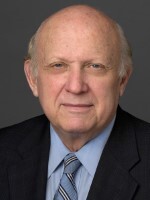





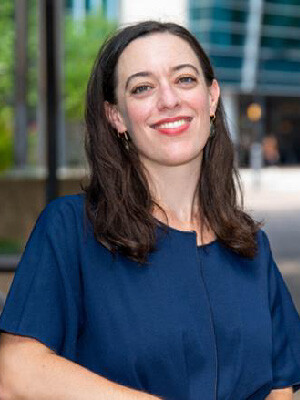










.jpg)







